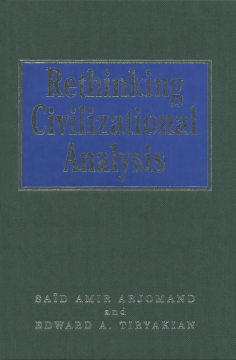
Additional Information
Book Details
Abstract
Although the concept of 'civilization' has deep roots in the social sciences, there is an urgent need to re-think it for contemporary times. This book points to an exhaustion in using 'the nation state' and 'world system' as the basic macro-units of social analysis because they do not get to grips with the 'soft power' variable of cultural factors involved in global aspects of development. Also, globalization requires us to reconsider the link between civilization and a fixed or given territory. This book focuses upon the dynamic aspect of civilizations.
Table of Contents
| Section Title | Page | Action | Price |
|---|---|---|---|
| A note from the publishers | |||
| About the authors | |||
| Acknowledgements | |||
| Foreword | |||
| Preface: The purpose of this book | |||
| Part One: Literacy and Development | |||
| 1. The case for literacy | |||
| Part Two: Planning for Literacy | |||
| 2. Recognising and assessing needs | |||
| 3. Looking at literacies and establishing aims | |||
| 4. Getting organised:some practical issues | |||
| Part Three:Exploring Teaching and Learning | |||
| 5. Some methods for teaching literacy | |||
| 6. Learning numbers and reading images | |||
| 7. Planning a session | |||
| 8. Selecting and training literacy workers | |||
| 9. Assessing progress and evaluating impact | |||
| Part Four: Materials for Literacy | |||
| 10. 'Special' materials | |||
| 11. 'Ordinary' materials | |||
| Part Five: Continuing with Literacy | |||
| 12. Developing a literate society | |||
| Postscript | |||
| Glossary | |||
| Notes | |||
| Further reading | |||
| Index |
